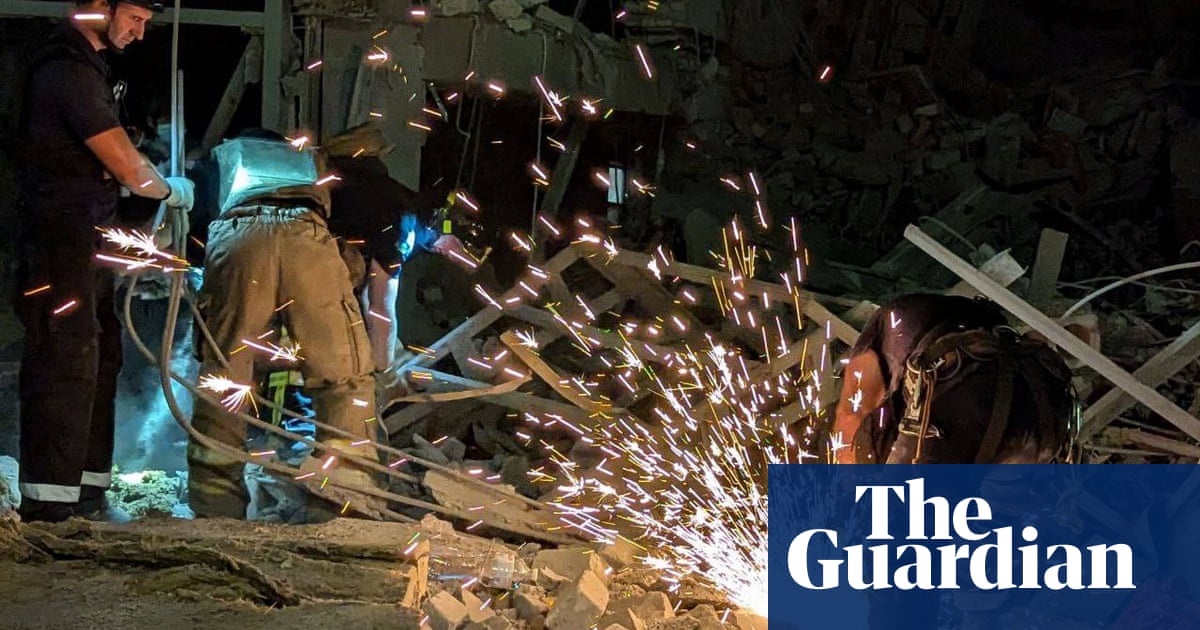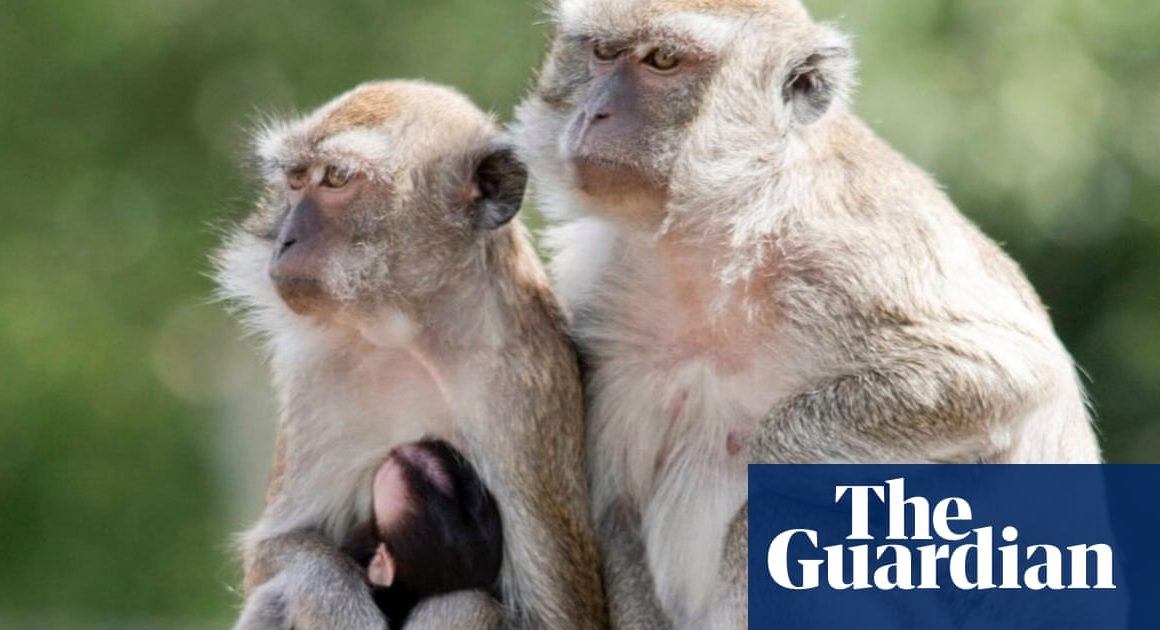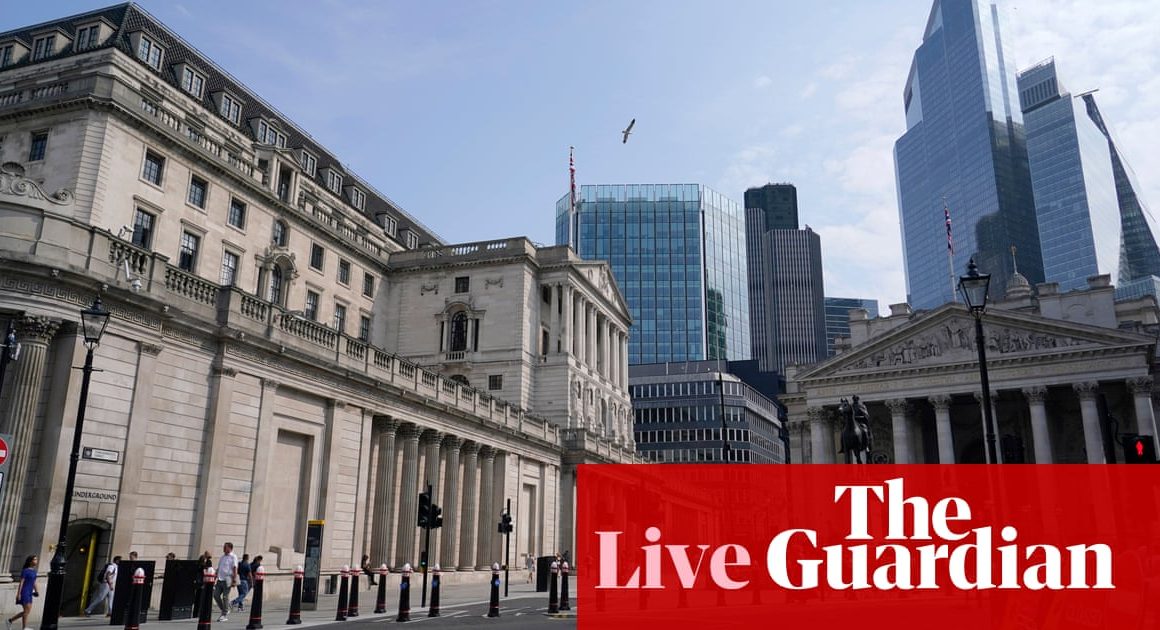Several Nato countries called for lifting restrictions on Ukraine’s use of weapons supplied by western allies, especially long-range missiles, a diplomatic source told Agence France-Presse as the Nato-Ukraine council met in Brussels on Wednesday. In an official statement from the meeting, Nato countries condemned this week’s “indiscriminate” heavy Russian strikes across Ukraine. The Nato chief, Jens Stoltenberg, said members reaffirmed their commitment to “stepping up their military aid to Ukraine … We must continue to provide Ukraine with the equipment and munitions it needs to defend itself against Russia’s invasion. This is vital for Ukraine’s ability to stay in the fight.”
Poland’s foreign minister, Radosław Sikorski, said that while Russia was using long-range weapons against Ukraine, allies should “let Ukraine fight with whatever it has, with whatever we have delivered them and let’s deliver them more”. Sikorski again proposed directly seizing Russia’s $320bn of assets held in the west, rather than just lending against the proceeds. “Let us confiscate the assets from the aggressor and give it to the victim of aggression.”
Ukraine’s foreign minister, Dmytro Kuleba, said in a broadcast conversation with Sikorski that the biggest problem faced by Kyiv was its allies’ fear of escalation. “The war is always about a lot of hardware – money, weapons, resources – but the real problems are always here, in the heads … Most of our partners are afraid of discussing the future of Russia … This is something that is very upsetting because if we do not speak about the future of the source of threat, then we cannot build strategy,” he said.
Volodymyr Zelenskiy said on Wednesday: “We continue to insist that decisiveness now, removing restrictions on Ukraine for long-range strikes now, will help us end the war as quickly as possible in a just manner for Ukraine and the entire world.” Ukraine’s president said a Russian glide bomb strike on the eastern town of Kupyansk had resulted in deaths. “There was a strike – right in the city centre, people were under the rubble. Unfortunately, there are fatalities.” The strike injured 14 people and damaged the city hall, the regional prosecutor’s office said.
Two days after a Russian missile strike on a hotel in Kryvyi Rih killed four people and injured five, another Russian attack hit the central Ukraine city during official mourning, injuring nine civilians and destroying 230 cars, said the Dnipropetrovsk oblast regional governor, Serhii Lysak. “When Kryvyi Rih is in mourning, the enemy attacks again,” Lysak said. “And once again he aims at civilians.”
Zelenskiy said the situation was “extremely difficult” around Pokrovsk in the Donetsk region. “The key Russian efforts and the largest forces are concentrated there.” Ukraine’s general staff said there was “fierce fighting” in a number of villages close to the city. Russia’s defence ministry announced on Wednesday that Russian forces had taken another settlement 20km (12 miles) from Pokrovsk where Ukrainian authorities have ordered mandatory evacuations.
Russian bombardments in the Donetsk region killed six people on Wednesday, the governor said. “In the morning the Russians killed four people and destroyed a house in Izmailivka,” said Vadym Filashkin, adding that two more people were killed in separate attacks near Chasiv Yar that damaged more than a dozen homes. Filashkin said about 30,000 people remained in Pokrovsk and surrounding villages as evacuations continued, and that banks would shutter in the town by Sunday. Pokrovsk was once home to about 60,000 people.
Ukrainian military intelligence claimed responsibility for a confirmed attack that left an oil depot burning in Russia’s Rostov region, saying the facility “is directly involved in the supply of the Russian occupation forces”. In the first known Ukrainian attack on Russia’s Kirov region, three Ukrainian drones hit an oil depot, setting it on fire. The region is about 950km (600 miles) north-east of the Ukrainian border. Ukraine said its anti-aircraft defences destroyed a Russian Su-25 jet in the Donetsk region.
Ukrainian authorities are scrambling to assess and repair the damage caused to energy infrastructure by one of the biggest Russian bombing waves of the war, Shaun Walker writes from Kyiv. Ukraine is still experiencing the tail end of a very hot summer, and this week’s strikes have brought into focus concerns about the hard colder months that lie ahead. “This winter is going to be tough, that’s for sure,” said Nataliia Shapoval, head of the Kyiv School of Economics Institute.
A Russian court ruled to keep in custody two Colombians suspected of acting as mercenaries, a crime under Russian law, after they reportedly fought in Ukraine. They were named as Jose Aron Medina and Alexander Ante and remanded in preliminary detention until 22 October. Colombia’s El Tiempo newspaper reported that the two men had been fighting on the side of Ukraine and may have been detained while heading home via Venezuela. The regime in Venezuela has close ties with Moscow.
Russia’s foreign ministry on Wednesday said it was banning entry to Russia for 92 US citizens including journalists, lawyers, and the heads of what it said were key military-industrial firms over what it described as Washington’s Russophobic stance. The Wall Street Journal, whose journalist Evan Gershkovich was freed this month in a prisoner exchange after 16 months in Russian detention, described the bans as “laughable” and part of attacks on the free press.
Ukraine’s first lady said her country’s children needed to be able to view themselves not as a generation of war victims but rather as “a generation of winners” as she visited a respite camp in the western city of Uzhhorod away from the frontlines. Many of the children will return to frontline cities after spending a few weeks at the camp created by Voices of the Children charity as a break from the trauma they face over and over. “We need the war to end, infrastructure for education to be in place, and for parents to feel secure,” she said. “We would very much like these children to be able to physically go to school, see their teachers and peers, and interact together. But for now, it’s impossible.”










